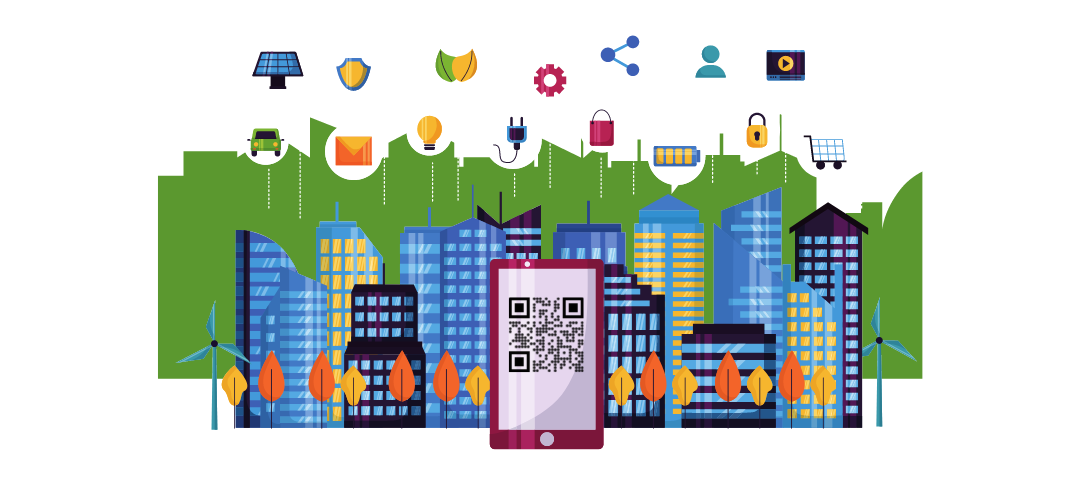Introduction:
As cities around the world continue to embrace the concept of smart urban development, Quick Response (QR) codes have emerged as versatile tools in building connected communities. By seamlessly integrating the physical and digital realms, QR codes contribute to the efficiency, accessibility, and sustainability of smart cities. This article explores the multifaceted role of QR codes in smart cities, highlighting their impact on citizen engagement, public services, and the overall enhancement of urban living.
- Efficient Public Transportation:
QR codes are instrumental in revolutionizing public transportation within smart cities. Commuters can use QR codes to access real-time information on bus and train schedules, route maps, and service updates. QR codes on public transportation vehicles enable contactless ticketing, streamlining the boarding process and contributing to a more efficient and seamless commuting experience.
- Smart Parking Solutions:
QR codes play a crucial role in smart parking systems, optimizing space utilization and reducing traffic congestion. Drivers can use QR codes on their smartphones to make electronic payments, check parking availability, and receive digital parking permits. This digital approach not only enhances convenience but also contributes to more effective urban planning and traffic management.
- Interactive Wayfinding and Navigation:
Smart cities leverage QR codes for interactive wayfinding and navigation. Pedestrians and cyclists can scan QR codes on signages or street corners to access digital maps, points of interest, and navigation assistance. This ensures that citizens and visitors can easily navigate urban environments, fostering a more pedestrian-friendly and accessible cityscape.
- Digital Citizen Services:
QR codes facilitate access to a wide range of digital citizen services. Residents can scan QR codes to pay utility bills, renew licenses, and access government services through dedicated mobile applications. This digitization streamlines bureaucratic processes, reduces wait times, and enhances overall citizen satisfaction with public services.
- Community Engagement and Events:
Smart cities use QR codes to enhance community engagement and promote local events. QR codes on posters, banners, or event flyers allow residents to access event details, RSVP, and receive updates through their smartphones. This approach fosters a sense of community involvement and ensures that citizens stay informed about local happenings.
- Health and Safety Measures:
In the context of public health, QR codes have become pivotal in implementing health and safety measures. Cities can use QR codes for contact tracing, allowing individuals to check in at public spaces while maintaining privacy. QR codes on informational materials provide citizens with access to health guidelines, vaccination information, and updates related to the ongoing public health situation.
- Environmental Sustainability Initiatives:
Smart cities employ QR codes to promote and monitor environmental sustainability initiatives. Citizens can use QR codes to access information about recycling programs, energy-saving tips, and public transportation alternatives. Additionally, QR codes on waste bins facilitate proper waste disposal by providing guidelines on recycling and waste separation.
- Urban Data Collection and Analysis:
QR codes contribute to urban data collection and analysis, enabling city planners to gather valuable insights. QR codes placed in specific locations can prompt citizens to provide feedback on public spaces, infrastructure, and services. This data-driven approach empowers city officials to make informed decisions for future urban development.
Conclusion:
QR codes have become integral components in the realization of smart cities, creating connected communities that thrive on efficiency, accessibility, and sustainability. From public transportation and digital citizen services to community engagement and environmental initiatives, the applications of QR codes in smart cities are diverse and transformative. As cities continue to evolve, the synergy between QR codes and smart urban development will play a pivotal role in shaping the future of connected, technologically advanced, and citizen-centric communities.









